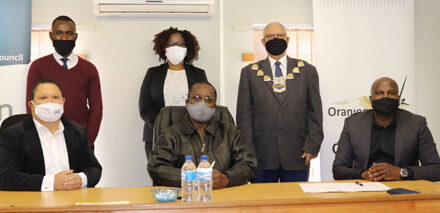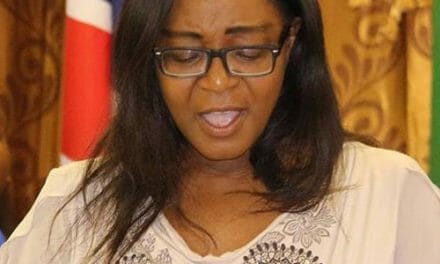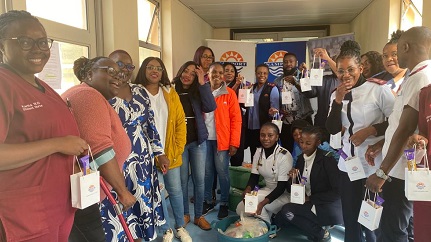
Region specific Positive Parenting training commences

As part of the Adolescent Girls and Young Women’s (AGYW) programme with funding from Global Fund to fight AIDS, TB and Malaria, the Society for Family Health (SFH) Country Director, Taimi Amaambois opened the first of its kind Positive Parenting training in Otjiwarongo this week.
Amaambois commended the multi-sectoral collaboration to drive this project which is currently rolling out training’s on Positive Parenting. Participants at the training include Program Officers from the Society for Family Health, Community Health Facilitators, and health providers from the Ministry of Health and Social Services from Omaheke, Zambezi, Kavango East and West, Omusati and Kunene region.
On her behalf, the Regional Health Director for the Otjozondjupa Region, Maria Kavezembi, reiterated that the national concern for the Adolescent girl-child is based on evidence and estimates that adolescents, especially young women, have HIV incidence rates much higher than men in their own peer age group with 76% per cent of all new infections is estimated to be among women.
The overall aim of the Girls and Young Women’s program is to reduce the vulnerability of the adolescent girl-child to HIV infection, unplanned pregnancies and other related social determinants such as keeping girls in schools by avoiding pregnancies, HIV infection, supporting adolescents living with HIV with life skills and related services for positive living.
Amaambois said it is a huge responsibility when interventions are designed with the objectives of training and equipping participants with skills on how to build positive relationships with children and adolescents using various communication skills; and to enable them to provide a supportive and user-friendly, client oriented service with respects to the privacy of parents and their children including adolescents living with HIV.
“I therefore humbly ask that we all recommit to support young girls and adolescents, that we seriously examine our focus, that we scale up our intervention programs, ensure a mix of the interventions we are implementing and most importantly ensure a continuous intensity,” Amaambois said.
Ensuring greater access to comprehensive adolescent-friendly sexual and reproductive health services and addressing gender-based violence was also found to minimise the multiple factors impacting on adolescent poor school attendance and school dropouts.
Among these include limited information to and access to sexual and reproductive health services.
The MoHSS 2012 HIV data showed that about 43 % of new infections took place in the age group 15–24. Furthermore, of these new infections, 67% are estimated to be among young women aged 15–24, indicating that women and girls are most vulnerable.
“There is low uptake of HIV Testing Service by adolescents aged 15-19 at 14& 29% among males and females respectively. In addition, by this age, 45 & 43 % of males and females respectively have already had sexual intercourse.”
Currently, government and community organisations with support from multi and bi-lateral organizations are implementing multiple interventions targeted towards adolescents including OVCs in selected regions.
These interventions range from school-based and extra-curricular life skills education, youth friendly sexual and reproductive health services, HIV Testing and Counselling services and other prevention approaches.













































